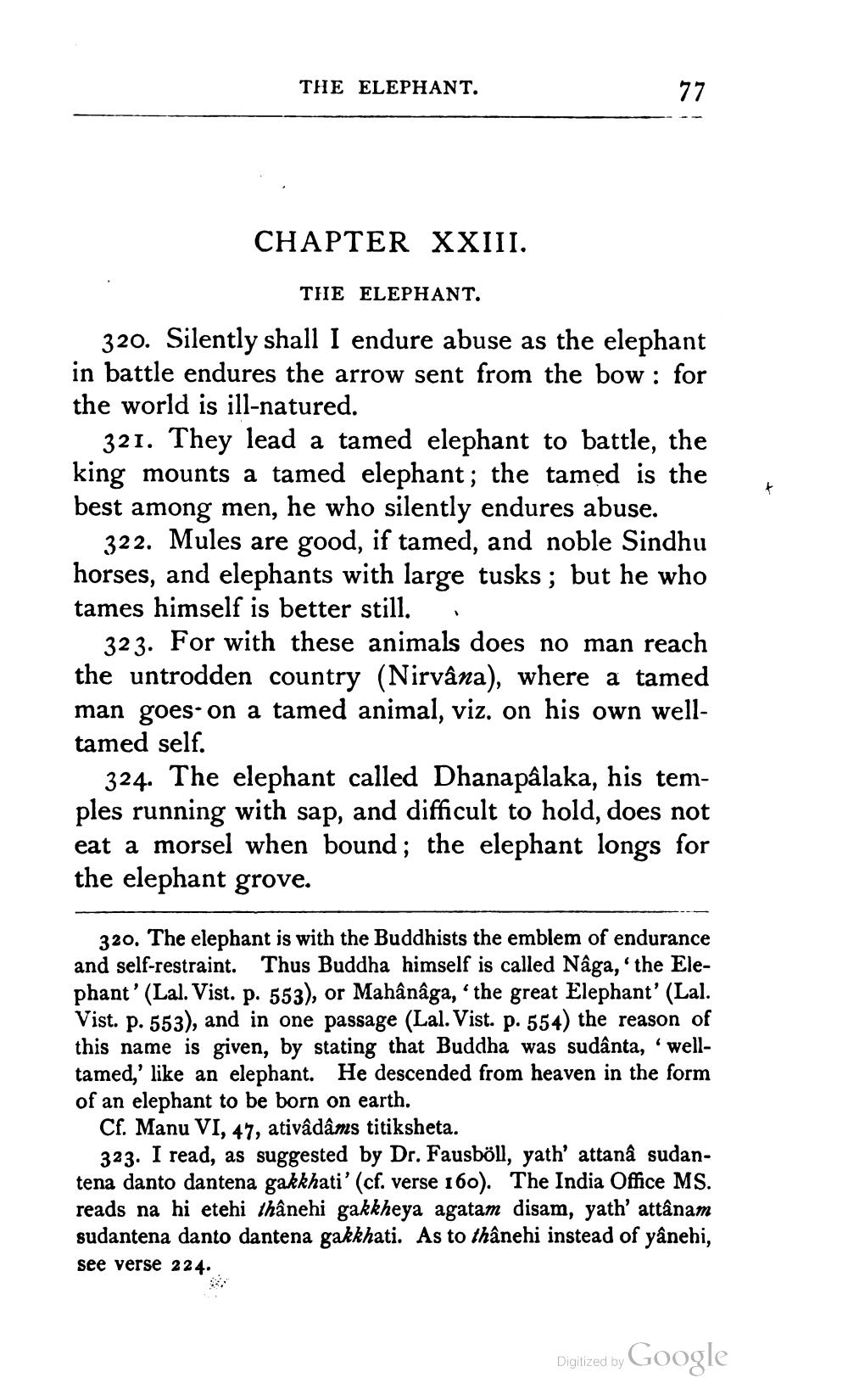________________
THE ELEPHANT.
CHAPTER XXIII.
77
THE ELEPHANT.
320. Silently shall I endure abuse as the elephant in battle endures the arrow sent from the bow: for the world is ill-natured.
321. They lead a tamed elephant to battle, the king mounts a tamed elephant; the tamed is the best among men, he who silently endures abuse.
322. Mules are good, if tamed, and noble Sindhu horses, and elephants with large tusks; but he who tames himself is better still.
323. For with these animals does no man reach the untrodden country (Nirvâna), where a tamed man goes on a tamed animal, viz. on his own welltamed self.
324. The elephant called Dhanapâlaka, his temples running with sap, and difficult to hold, does not eat a morsel when bound; the elephant longs for the elephant grove.
320. The elephant is with the Buddhists the emblem of endurance and self-restraint. Thus Buddha himself is called Nâga,' the Elephant' (Lal. Vist. p. 553), or Mahânâga, 'the great Elephant' (Lal. Vist. p. 553), and in one passage (Lal. Vist. p. 554) the reason of this name is given, by stating that Buddha was sudânta, 'welltamed,' like an elephant. He descended from heaven in the form of an elephant to be born on earth.
Cf. Manu VI, 47, ativâdâms titiksheta.
323. I read, as suggested by Dr. Fausböll, yath' attanâ sudantena danto dantena gakkhati' (cf. verse 160). The India Office MS. reads na hi etehi thânehi gakkheya agatam disam, yath' attânam sudantena danto dantena gakkhati. As to thânehi instead of yânehi,
see verse 224.
Digitized by Google
+




